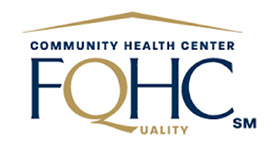AHL in the News, Events, homepage, News, Washington C.H.C, Access Health Louisiana Primary Care at Pythian, Belle Chasse C.H.C, Kenner C.H.C., South Broad C.H.C, St. Bernard C.H.C., St. Charles – Norco C.H.C, St. Charles Community Health Center – Luling, St. Tammany – Slidell C.H.C, Tangipahoa C.H.C, Woodworth C.H.C.
FEBRUARY IS
AMERICAN HEART MONTH
RECLAIM YOUR RHYTHM
February is American Heart Month, a time to pay special attention to understanding, preventing and treating heart disease which is the leading cause of death in the nation.
Over 874,000 Americans died of cardiovascular disease in 2019, according to the American Heart Association’s “Heart Disease and Stroke Statistics – 2022 Update.”
This February, the 58th American Heart Month, the AHA is urging people all over the country to “reclaim your rhythm.”
What does that mean? Quite simply, the AHA is encouraging people to reclaim control of their mental and physical well-being after two difficult years of the COVID-19 pandemic.
For American Heart Month, the AHA and other organizations reinforce the importance of heart health and the need for more research and efforts to ensure that millions of people live longer and healthier.
Here are just a few examples of how you can reclaim your health:
- Do at least 150 minutes of moderate-intensity physical activity a week (or, just get started and work your way there!)
- Eating healthy (the AHA’s Heart-Check mark can guide you in the grocery store)
- Not smoking or vaping
- Maintaining a healthy weight
- Controlling blood sugar, cholesterol and blood pressure
- Getting regular checkups
- Learning Hands-Only CPR
- Following COVID-19 safety protocols
- Finding ways to relax and ease your mind, such as meditation
Caring for yourself and others is a great way to counter the pandemic’s heavy toll on health. Additionally, taking care of your heart is good for your brain. That’s because many of the risk factors for heart disease, including high blood pressure, diabetes and obesity, are also related to brain diseases such as stroke, Alzheimer’s disease and other dementias, experts note.
Heart disease has remained the leading health threat during the pandemic, and more people are reporting lower physical and emotional wellness. Many people have delayed or avoided seeking medical care. Unhealthy use of alcohol and other substances has been on the rise.
All these things can increase the risk of heart disease.
For nearly a century, the AHA has worked to encourage people to live healthier and longer, free of heart disease and stroke. But the first American Heart Month didn’t come until 1964.
President Lyndon B. Johnson, among the millions of people in the country who’d had heart attacks, issued the first proclamation for American Heart Month in 1964 to spotlight heart disease. Since then, U.S. presidents have annually declared the federally designated event for February.
The first Friday of American Heart Month, Feb. 4, is also National Wear Red Day as part of the AHA’s Go Red for Women initiative.
Coast to coast, landmarks, news anchors and neighborhoods go red to raise awareness and support the fight against heart disease – the No. 1 killer of women, causing 1 in 3 deaths. That’s more than all forms of cancer combined.






